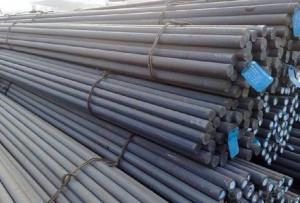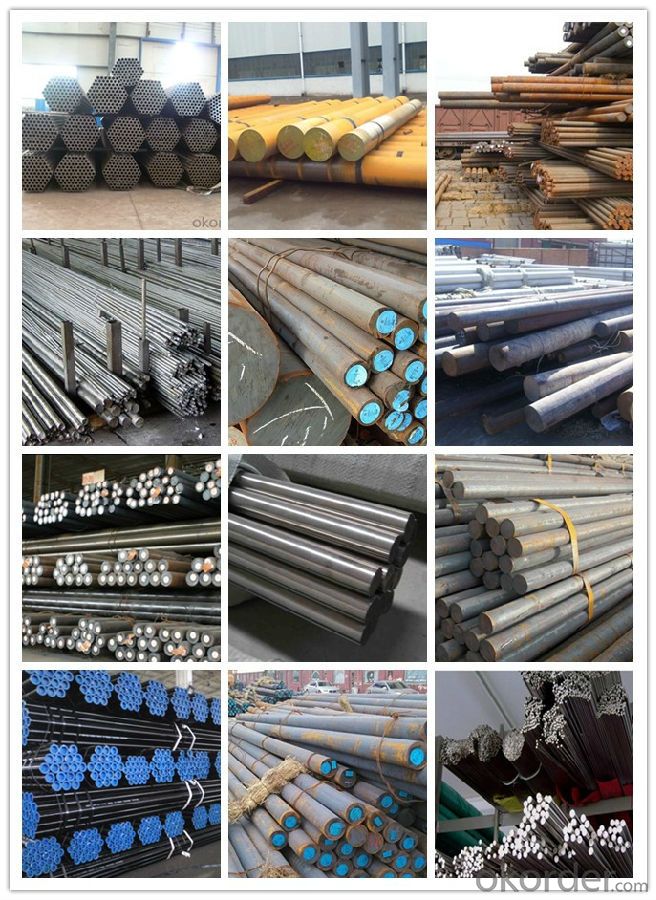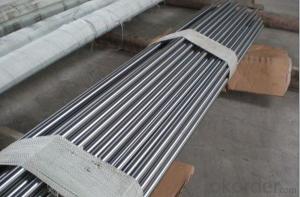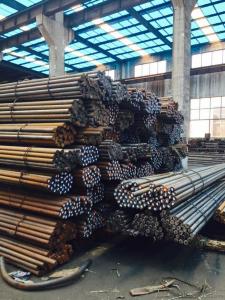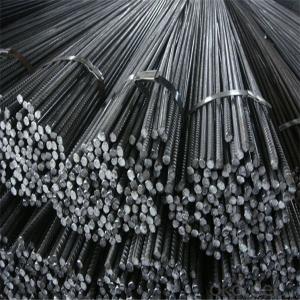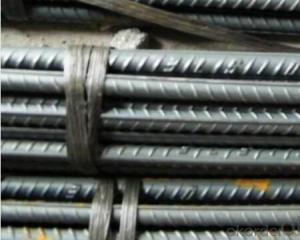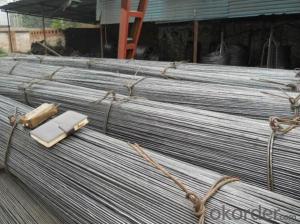Deformed Steel Bar HRB500 Construction Rebar
- Loading Port:
- China main port
- Payment Terms:
- TT OR LC
- Min Order Qty:
- 30 m.t.
- Supply Capability:
- 10000 m.t./month
OKorder Service Pledge
OKorder Financial Service
You Might Also Like
Specification
Product information:
| Commodity: | High quality hot rolled ribbed bar, Steel rebar, Deformed bars, Deform rebar |
| Standard & Grade: | GB1499-98 : HRB335,HRB400,HRB500 |
| BS4449-1997 : GR460B,GRB500B | |
| CAN/CSA-G30.18-M92 : 400W | |
| AS/NZS4671-2001 : GR300E, GR500E | |
| JIS G3112-2010 : SD345,SD390,SD490 | |
| ASTM A615 : Gr.40, Gr.60 | |
| DIN488-1984 : BST500 | |
| KS D 3504 : SD400 | |
| Diameter: | 6mm - 50mm |
| Length: | 6m,9m,12m |
| Packing: | Bundle packing |
| Origin: | China |
| Application: | Construction,Road,Machinery processing,Welding fields. |
| Delivery time: | 10-25 days |
| Shipment: | By bulk vessel or Container |
| Documents: | Mill Test Certificate,Commercial Invoice,Packing List,Certificate of Origin |
Product show
Workshop show
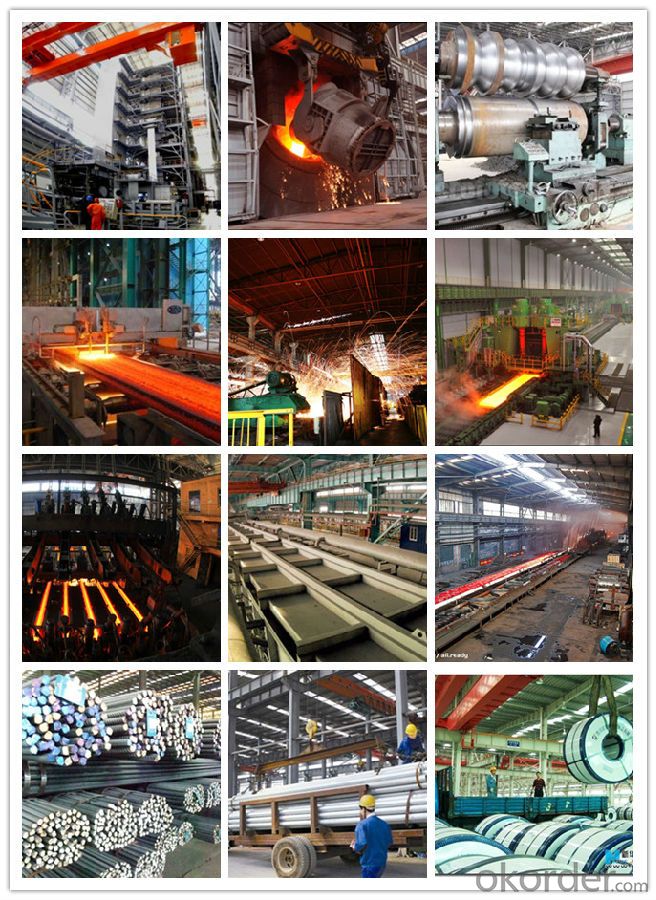
Shipping
1. FedEx/DHL/UPS/TNT for samples, Door-to-Door;
2. By Air or by Sea for batch goods, for FCL; Airport/ Port receiving;
3. Customers specifying freight forwarders or negotiable shipping methods!
Delivery Time: 3-7 days for samples; 5-25 days for batch goods.
Payment Terms
1.Payment: T/T, L/C, Western Union, MoneyGram,PayPal; 30% deposits; 70% balance before delivery.
2.MOQ: 1pcs
3.Warranty : 3 years
4.Package Informations: 1) EXPORT, In 20 feet (GW 25 ton) or 40 feet Container (GW 25 ton)
2)as customer's requirement
Why choose us?
(1) The leading exporter in China special steel industry.
(2) Large stocks for various sizes, fast delivery date.
(3) Good business relationship with China famous factories.
(4) More than 7 years steel exporting experience.
(5) Good after-sales service guarantee.
- Q: How does special steel contribute to the automotive suspension spring industry?
- Special steel contributes to the automotive suspension spring industry by providing enhanced strength, durability, and flexibility. This type of steel allows suspension springs to withstand the constant stress and load of vehicle weight, while also providing optimal ride comfort and handling. The high-quality properties of special steel help suspension springs to maintain their shape and performance over time, ensuring a smooth and stable ride for vehicles.
- Q: What are the different quality control measures for special steel production?
- There are several quality control measures implemented during special steel production, including rigorous inspections at various stages of the manufacturing process, such as raw material testing, chemical composition analysis, and heat treatment verification. Additionally, non-destructive testing techniques, such as ultrasonic testing and magnetic particle inspection, are employed to detect any defects or inconsistencies in the steel's structure. Furthermore, dimensional and surface quality checks are performed to ensure that the final product meets the required specifications and standards.
- Q: What are the common challenges in machining titanium alloys?
- Successful and efficient results in machining titanium alloys require addressing several common challenges. One primary challenge is the inherent strength and hardness of the material. Titanium alloys are renowned for their excellent strength-to-weight ratio, making them ideal for various applications. However, this same strength makes them difficult to machine. The high strength of titanium alloys increases the cutting forces needed during machining, resulting in faster tool wear and reduced tool life. This necessitates the use of robust cutting tools made from carbide or ceramic, capable of withstanding demanding conditions and maintaining cutting performance. Another challenge in machining titanium alloys is their poor thermal conductivity. This characteristic leads to rapid heat buildup during cutting, causing localized high temperatures. These high temperatures can cause thermal damage to both the cutting tool and the workpiece, reducing dimensional accuracy and surface finish. To overcome this challenge, implementing effective cooling and lubrication techniques, such as using coolant or high-pressure air, is crucial to dissipate heat and prevent overheating. Furthermore, machining titanium alloys often results in the generation of built-up edge (BUE). BUE refers to the accumulation of workpiece material on the cutting tool, leading to poor chip evacuation, increased cutting forces, and surface finish issues. To mitigate BUE formation, it is recommended to use appropriate cutting speeds and feed rates, as well as cutting fluids that aid in chip evacuation and prevent material adhesion on the tool. Additionally, titanium alloys react strongly with oxygen, causing the formation of a stubborn oxide layer on the surface during machining. This oxide layer can cause tool chipping and premature wear. To combat this, it is necessary to employ suitable cutting speeds and feeds that efficiently remove material while minimizing prolonged exposure to the reactive nature of titanium alloys. Lastly, the low thermal expansion coefficient of titanium alloys can result in workpiece distortion and dimensional inaccuracies. To address this challenge, it is important to ensure proper fixturing and clamping techniques that minimize workpiece movement during machining. In conclusion, machining titanium alloys presents challenges such as high cutting forces, poor thermal conductivity, built-up edge formation, reactive oxide layer, and workpiece distortion. These challenges can be overcome by using appropriate cutting tools, effective cooling and lubrication techniques, proper cutting parameters, and careful workpiece handling.
- Q: Can special steel be used for making aerospace engine components?
- Certainly, aerospace engine components can be made using special steel. The aerospace industry commonly utilizes special steel alloys, such as nickel-based superalloys and stainless steels, due to their remarkable mechanical properties, ability to withstand high temperatures, and superior resistance to corrosion. These alloys are specifically engineered to endure the extreme conditions and demands of aerospace engines, including high temperatures, pressures, and stress levels. Moreover, special steel alloys offer a high strength-to-weight ratio, which is crucial in reducing the weight of aerospace components while preserving their structural integrity. Consequently, the utilization of special steel in aerospace engine components ensures the dependability, performance, and safety of engines in aeronautical applications.
- Q: Can special steel be used in the pharmaceutical manufacturing equipment manufacturing industry?
- Yes, special steel can be used in the pharmaceutical manufacturing equipment manufacturing industry. Special steel alloys such as stainless steel are commonly used due to their corrosion resistance, durability, and ability to withstand high temperatures and harsh chemicals. These qualities make special steel a suitable choice for various equipment used in pharmaceutical manufacturing, including tanks, reactors, mixers, and piping systems.
- Q: What are the future prospects for the special steel industry?
- The future prospects for the special steel industry are promising. With advancements in technology, increasing demand for high-performance materials in various sectors such as automotive, aerospace, and construction, the special steel industry is expected to witness steady growth. Additionally, the shift towards sustainable and lightweight materials in industries like renewable energy and electric vehicles presents new opportunities for the special steel industry. However, the industry may face challenges in terms of environmental regulations and competition from alternative materials. Overall, the future outlook for the special steel industry looks favorable, driven by technological advancements and evolving market demands.
- Q: How does special steel contribute to the power generation equipment industry?
- Enhanced performance, durability, and reliability are crucial contributions of special steel to the power generation equipment industry. Turbines, generators, and transformers, which operate in harsh conditions characterized by high temperatures, pressure, and corrosive environments, benefit from the unique properties and characteristics of special steel. An advantage of special steel in power generation equipment lies in its capacity to withstand high temperatures. Heat-resistant steel alloys, explicitly designed for extreme conditions, enable power plants to function efficiently and safely at elevated temperatures. These steels maintain their strength, structural integrity, and resistance to creep and fatigue even under the highest operating temperatures, guaranteeing the reliability and longevity of the equipment. Moreover, special steel exhibits excellent corrosion resistance, a critical feature for power generation equipment due to the presence of corrosive elements like water, steam, and chemicals. Stainless steel, in particular, is highly utilized in power plants thanks to its remarkable corrosion resistance, preventing equipment degradation and reducing maintenance costs. By employing special steel, power generation companies can minimize downtime and improve overall efficiency. Furthermore, special steel contributes significantly to the power generation equipment industry by providing exceptional strength and mechanical properties. This is especially crucial for large-scale equipment like turbines and generators, which face high mechanical loads. High-strength special steel allows these components to withstand stress and pressure, ensuring their safe and reliable operation over extended periods. Additionally, special steel's unique properties, such as high hardness and wear resistance, make it suitable for critical components like blades and rotors, minimizing the risk of failure and enhancing overall performance. In conclusion, special steel is an indispensable material within the power generation equipment industry. Its ability to endure high temperatures, resist corrosion, and provide exceptional strength and mechanical properties ensures the reliability, durability, and efficiency of power plants. Through the utilization of special steel, power generation companies can enhance equipment performance and reduce maintenance costs, ultimately contributing to the sustainable and dependable production of electricity.
- Q: How does special steel contribute to improving product durability?
- Special steel contributes to improving product durability in several ways. Firstly, special steel has superior strength and toughness compared to regular steel, making it more resistant to wear and tear. This allows products made from special steel to withstand heavy usage and harsh conditions without losing their structural integrity. Additionally, special steel is often more corrosion-resistant, preventing rust and other forms of deterioration that can compromise a product's longevity. Lastly, special steel can be tailored to specific applications, enabling manufacturers to design products with optimal performance and durability in mind. Overall, special steel plays a crucial role in enhancing product durability and extending their lifespan.
- Q: How does special steel perform in high-temperature mechanical fatigue conditions?
- Special steel performs well in high-temperature mechanical fatigue conditions due to its unique composition and properties. It exhibits excellent strength, toughness, and heat resistance, enabling it to withstand cyclic loading and high temperatures without experiencing significant degradation or failure. The special steel's exceptional performance in such conditions makes it an ideal choice for applications that involve continuous exposure to elevated temperatures and mechanical stresses, ensuring long-term reliability and durability.
- Q: What are the different methods of improving the toughness of special steel?
- There are several methods of improving the toughness of special steel. One common method is through heat treatment, such as quenching and tempering, which involves rapidly cooling the steel to increase its hardness and then reheating it to improve its toughness. Another method is alloying, where elements like nickel, chromium, and molybdenum are added to the steel to enhance its toughness. Additionally, refining the steel's microstructure through processes like grain-size control and precipitation hardening can also improve its toughness.
Send your message to us
Deformed Steel Bar HRB500 Construction Rebar
- Loading Port:
- China main port
- Payment Terms:
- TT OR LC
- Min Order Qty:
- 30 m.t.
- Supply Capability:
- 10000 m.t./month
OKorder Service Pledge
OKorder Financial Service
Similar products
Hot products
Hot Searches
Related keywords
